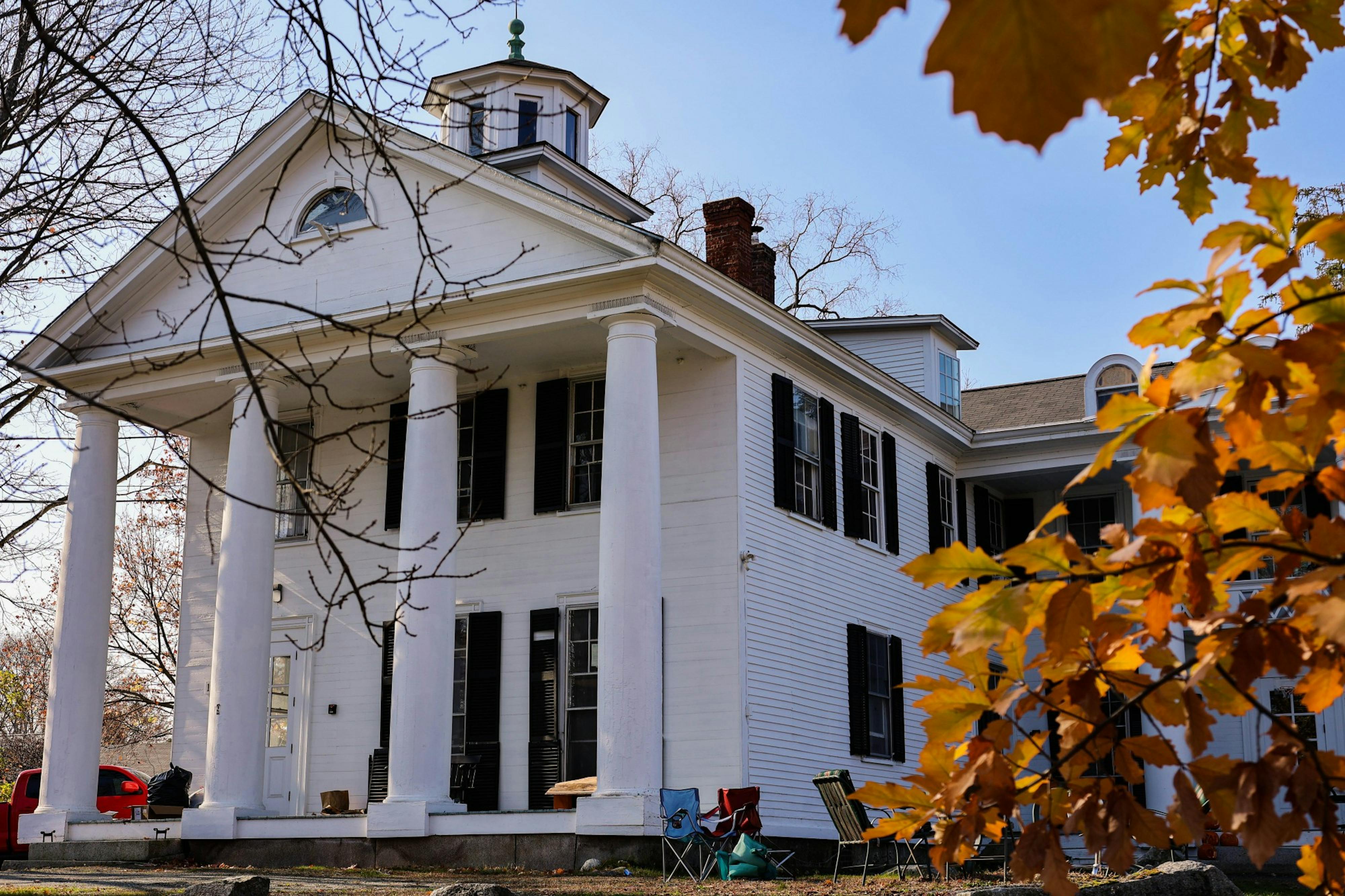Students discuss how alternative social spaces — such as the Dartmouth Outing Club, Panarchy and Amarna — aim to foster inclusion and community.

With about 60% of Dartmouth’s student population involved in Greek life, the prevalence of Greek life on campus culture is undeniable. Though the Greek system has been credited with fostering community and livening Dartmouth’s party culture, some have criticized it for exacerbating exclusivity, especially on the basis of gender identity, race and socioeconomic status.
Other groups on campus, such as the Dartmouth Outing Club, are able to attract high student engagement in a way that they hope is more inclusive than Greek Life. Utilizing an open recruitment process, the DOC has over 1,500 student members.
“All of our club meetings are entirely open,” explained DOC president Saige Gitlin ’22. “There is no requirement of any form or application process to be a member of the DOC.”
Additionally, the DOC welcomes students of varying levels of commitment and encourages members to “be involved in whatever capacity they want.” As Giltin explained, some students are very involved — attending meetings or chairing their clubs — while others simply sign up for a trip or two through Trailhead — the online platform where Dartmouth students can sign up for trips regardless of experience or commitment to the DOC.
Bea Burack ’25 said her experience in the DOC provided her with a wonderful opportunity to interact with upperclassmen.
“I think it was really nice, especially the first couple of weeks when I was doing a lot more trips, just to be in a space with people of all ages,” Burack said. “It was just nice to hear upperclassmen’s perspectives about Dartmouth and get advice from them.”
Burack also said that in her experience, the DOC has a welcoming, “chill” environment, where “no one’s trying to show off in any way or be competitive.” Gitlin echoed a similar sentiment while discussing how the DOC tries to combat the narrative established by the outdoor industry.
“I think the outdoor industry has a lot of standards that have been set and ingrained into people’s minds about what it means to be outdoors … and that inherently deters people,” Gitlin said. “When in reality, to be in the outdoors really just means being outside.”
Another alternative social space to Greek life is Panarchy — an undergraduate co-ed society. Moonoka Begay ’23, one of the house managers of Panarchy, explained that the house “does not subscribe to any sort of Greek internal structures,” including the rush process to pledging; students can become new members by befriending people in the house.
“We like to think of [membership to Panarchy] more as an organic [process],” Begay said. “Our meetings are open to everyone… so anyone can come to meetings and see what we’re about.”
Though this process is more natural, Begay pointed out its flaws, stating that it is not a very structured system.
“I think that sometimes we’re criticized for [our membership system] because people just see it as this cool, alternative little social group where you have to be cool enough to get in — which is not how I see it at all,” Begay said.
Instead, Begay said, Panarchy tries to provide a space for those who need it most — whether that be a person in need of a queer space, a space that supports artists or a space that is financially accessible. Panarchy prioritizes cultivating a safe space for its members, which can sometimes necessitate exclusion.
Begay explained how her identity as a queer, indegenous woman has made her feel isolated from the greater Dartmouth culture — and how Panarchy has welcomed her.
“Panarchy is important because it makes me feel welcome, it makes me feel heard,” Begay said. “It gives me and others who feel like they don’t necessarily fit in at Dartmouth the space to live freely and dance and to just have fun.”
Dartmouth students often associate fun with fraternities, but it can also be found in alternative social spaces, like Amarna — another undergraduate society and co-ed residential social organization. Founded in 1994, Amarna’s roots lie in frustrations surrounding the Greek system’s exclusivity and gender dynamics.
Similar to Panarchy, Amarna does not follow Greek internal structures and does not carry out a rush or pledge process. In fact, according to Amarna co-president Nat Stornelli ’21, becoming a member of Amarna is as simple as “be[ing] physically present in the house and say[ing] the words ‘I want to join Amarna.’”
In Amarna, community is cultivated through weekly meetings, shared dinners, house parties, wine and cheese nights and its welcoming environment. As Nat reflected on their personal experiences in Amarna, they emphasized the importance of sustaining this inclusive environment.
“Amarna has been important to me as somebody who came into college figuring out stuff about gender and transition and trying to find a place where I would be accepted for being openly queer and trans,” Stornelli said. “And I think that, having had that, it’s very important for me to foster that space for other people who might need it.”
"social" - Google News
November 10, 2021 at 02:18PM
https://ift.tt/3oecNAa
Alternative Social Spaces: An Attempt at Inclusion? - The Dartmouth
"social" - Google News
https://ift.tt/38fmaXp
https://ift.tt/2WhuDnP
Bagikan Berita Ini














0 Response to "Alternative Social Spaces: An Attempt at Inclusion? - The Dartmouth"
Post a Comment